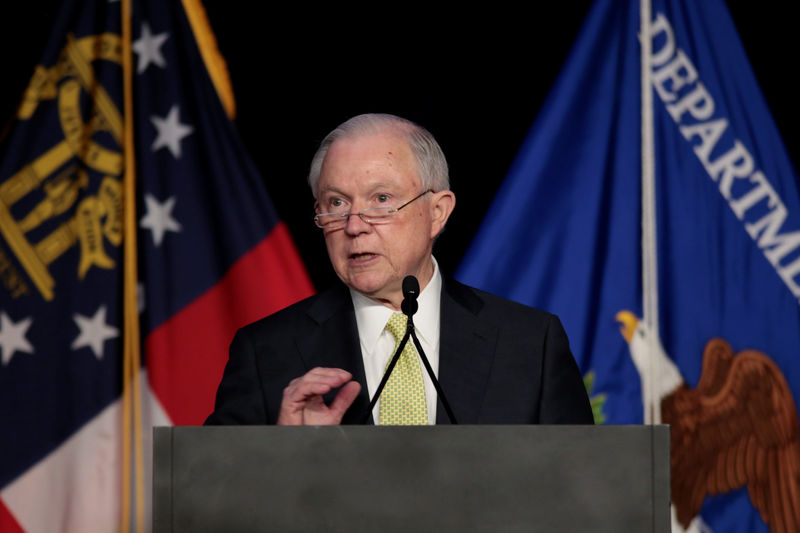By Julia Edwards Ainsley
WASHINGTON (Reuters) - U.S. Attorney General Jeff Sessions' public testimony before a Senate panel on Tuesday sets up another potentially dramatic hearing on possible ties between President Donald Trump's campaign and Russian meddling in the 2016 presidential race.
Sessions will likely face tough questions at the open Senate Intelligence Committee hearing over his dealings with Russian officials during the campaign and whether he had a role in the firing of former FBI Director James Comey.
Until a statement on Monday from committee Chairman Richard Burr, a Republican, it had been unclear whether Sessions would testify in an open or closed setting.
Initially, Sessions expected to testify in a closed-door session, said two sources familiar with the attorney general's thinking. But he left the decision up to Burr, the sources said.
A Justice Department spokeswoman said that Sessions requested the open setting because "he believes it is important for the American people to hear the truth directly from him."
Comey told the same panel last week that the FBI had information in mid-February on Sessions that would have made it "problematic" for the attorney general to continue leading a federal probe into Russian attempts to influence the presidential election.
Sessions recused himself from that inquiry in March after media reports that he had been in two previously undisclosed meetings last year with Russian ambassador Sergei Kislyak.
Tuesday's testimony, scheduled to start at 2:30 p.m. (1830 GMT), will be the first for Sessions in a congressional hearing since he became attorney general. During his nomination hearing in January, the former senator told the Senate Judiciary Committee that he had no contacts with Russian officials as part of the Trump campaign.
Sessions is likely to be questioned over the truthfulness of his answers in January.
A spokesman for the Justice Department said after media reports emerged in March of the meetings that Sessions had answered honestly because the encounters were part of his job as a senator and not as a surrogate of the Trump campaign.
MOST SENIOR OFFICIAL TO TESTIFY
Democratic Senator Dianne Feinstein, a member of both the Senate intelligence and judiciary committees, has said Sessions should answer questions about his January testimony.
Intelligence Committee members will also likely ask Sessions about a possible third undisclosed meeting with Kislyak that is now under investigation, according to media reports.
Sessions, an early supporter of Trump's election campaign, will be the most senior government official to testify to the committee on the Russia issue, which has dogged the Republican president's early months in office.
Critics charged that by firing Comey on May 9, Trump was trying to hinder the FBI's Russia probe. The former FBI chief added fuel to that accusation with his testimony last week. Trump has denied he tried to interfere with the probe.
In his testimony, Comey said he had asked Sessions not to leave him alone with Trump following meetings where he said Trump had asked Comey for his loyalty. The attorney general may also face questions on that.
Media reports last week said Sessions offered to resign because of tensions with Trump over his decision to recuse himself from the FBI's Russia probe. The allegations are being investigated by special counsel Robert Mueller and several congressional panels, including the Senate Intelligence Committee.

Russia has denied interfering in the U.S. election. The White House has denied any collusion with Moscow.